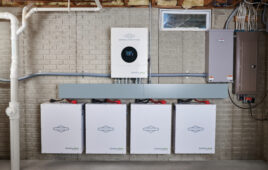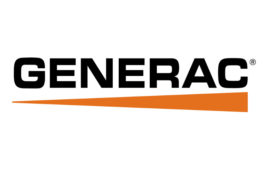The Dept. of Treasury and Internal Revenue Service issued final regulations today describing rules and definitions for the transfer of eligible credits in a taxable year, including specific rules for partnerships and S corporations.
The Inflation Reduction Act and the Creating Helpful Incentives to Produce Semiconductors act (CHIPs) enable taxpayers to take advantage of certain manufacturing investment, clean energy investment and production tax credits through elective pay or transfer provisions.
For tax years beginning after Dec. 31, 2022, eligible taxpayers can choose to transfer all or a portion of eligible credits to unrelated taxpayers for cash payments.
The unrelated taxpayers are then allowed to claim the transferred credits on their tax returns. The cash payments are not included in gross income of the eligible taxpayers and are not deductible by the unrelated taxpayers.
The final regulations also describe special rules related to excessive credit transfers and recapture events, including rules for determining whether an event has occurred, the resulting tax impact and the person responsible for that tax impact.
The final regulations also provide rules for a mandatory IRS pre-filing registration process through an electronic portal. The pre-filing registration process must be completed, and a registration number received, prior to making an election to transfer eligible credits.
In addition, the final regulations describe specific rules for partnerships and S corporations as eligible taxpayers and transferee taxpayers.
Previously, the IRS issued proposed regulations for the transfer of applicable credits and temporary regulations for the mandatory IRS pre-filing registration process.
Ben Norris, VP of regulatory affairs at the Solar Energy Industries Association (SEIA), issued the following statement in response to the release:
“Expanded clean energy tax credits are supercharging America’s energy economy. The solar and storage industry appreciates Treasury’s efforts to quickly finalize complex rules around tax credit transferability, helping to provide the flexibility many clean energy companies need to move forward with billions of dollars in investments.
“These rules allow solar, storage, and manufacturing companies of all sizes to efficiently monetize various tax credits without the need for large, complex, and costly tax equity structures. The rules will strengthen existing transfer markets and add much needed liquidity for clean energy businesses as they navigate high interest rates and other economic headwinds.
“With the transferability provisions of the Inflation Reduction Act (IRA) fully implemented, we continue to call on the Biden administration to revise proposed Basel III rules on tax equity capitalization requirements. The U.S. solar and storage industry is expected to add over half a trillion dollars to the U.S. economy over the next decade, and the proposal as written threatens to blunt the impact of the IRA’s transferability provisions.”
For detailed instructions on how to use the tool, refer to Publication 5884, Inflation Reduction Act (IRA) and CHIPS Act of 2022 Pre-Filing Registration ToolPDF.
The IRS also updated the frequently asked questions based on the final regulations. More information can be found on the Inflation Reduction Act of 2022 page on IRS.gov.
News item from the IRS





Kelsey – I am trying to learn if and how someone that is carrying a tax bill from prior years can apply the ITC to first this year’s taxes and then apply to say 21 and 22 outstanding balances. It makes no sense to me that if you can carry it forward, you would not be able to retire existing debt.